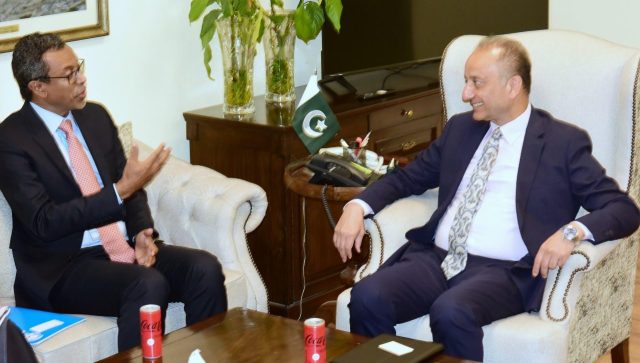ISLAMABAD, Thursday, May 08, 2025 (WNP): The United Nations Children’s Fund (UNICEF) has reaffirmed its commitment to bolstering efforts that protect Pakistani children from the growing threats of climate change, following a high-level meeting with the Federal Minister for Climate Change, Senator Musadik Masood Malik.
UNICEF Representative Abdullah A. Fadil met with Senator Malik here to explore policy interventions aimed at reducing climate vulnerabilities, particularly among children — a demographic increasingly exposed to extreme weather and environmental hazards.
“Children in Pakistan, like in many parts of the world, are on the frontlines of the climate crisis,” Fadil said. “We must urgently strengthen resilience in health, education, and water systems to safeguard their futures.”
Fadil underscored that Pakistan’s youth remain among the most at-risk globally due to climate-induced risks. UNICEF’s ongoing programs in the country currently reach nearly six million children, focusing on healthcare, education, and skills development to foster long-term resilience and empower young people as agents of sustainable socio-economic growth.
Senator Malik welcomed UNICEF’s continued support and reiterated the government’s commitment to placing youth at the center of its climate strategy. “Investing in our young population is not just a moral imperative — it is key to building climate leadership and achieving the Sustainable Development Goals,” he said.
He also emphasized the importance of mobilizing climate finance to support child-focused initiatives and infrastructure development.
Fadil congratulated Senator Malik on his new ministerial role and expressed confidence in Pakistan’s renewed climate agenda under his leadership.
The meeting highlighted the urgency of coordinated action to shield vulnerable populations — especially children — from the worsening impacts of climate change. As one of the world’s most climate-vulnerable countries, Pakistan continues to grapple with intensifying heatwaves, floods, and droughts that disproportionately affect children’s health, education, and overall well-being.
Both sides agreed on the need for integrated strategies to strengthen child-centric climate resilience and ensure inclusive development in the face of environmental challenges.




